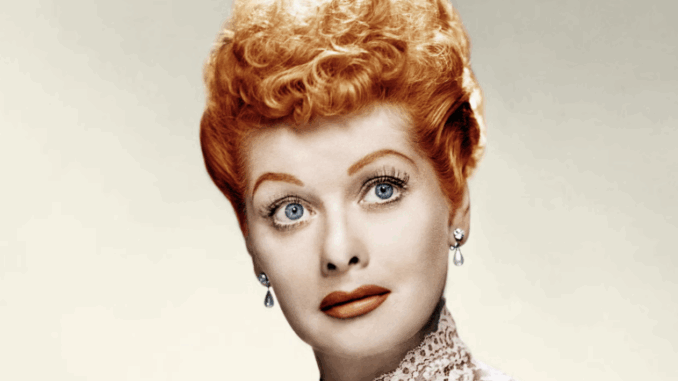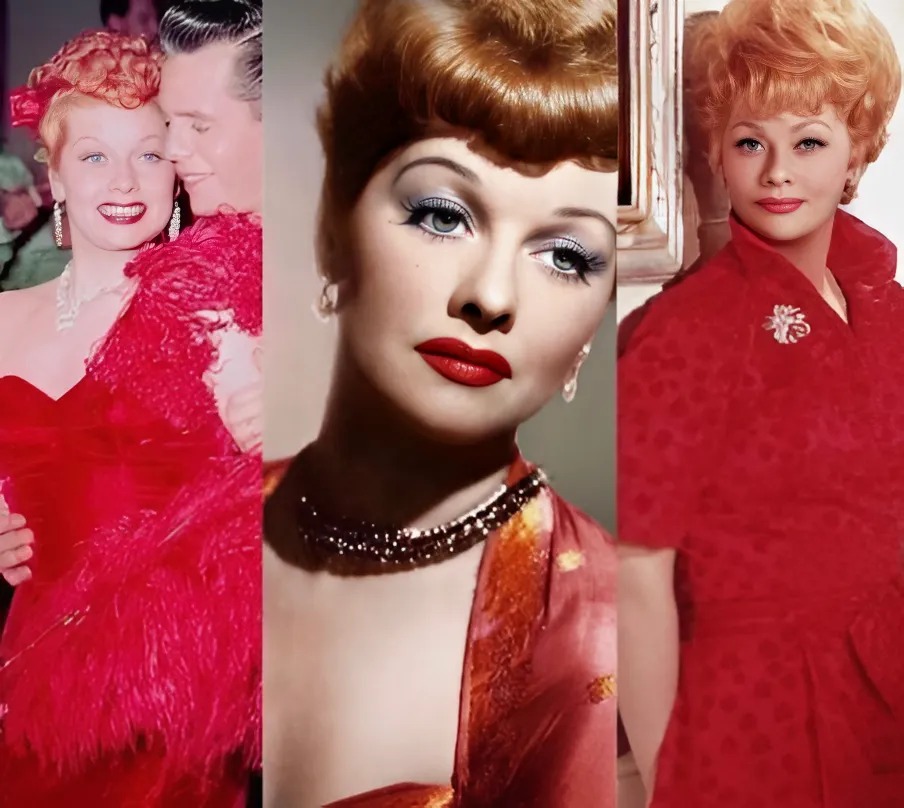
In an era when women were rarely behind the camera, Lucille Ball achieved the seemingly impossible. She wasn’t just the “Queen of Comedy” with I Love Lucy; she was the first woman to own a major television production studio: Desilu Productions. This article explores Lucy’s journey—from an unknown model to an immortal Hollywood icon—and how she fundamentally altered the way we watch TV forever.
A Rocky Start and Unforeseen Beginnings
Before she became a household name, Lucille Ball’s path to stardom was anything but smooth. Born in Jamestown, New York, her early life was marked by frequent moves and financial struggles after her father’s untimely death. Aspiring to be an actress, Lucy initially found work as a model and chorus girl, often struggling to make ends meet in New York City. Her early film career in Hollywood saw her primarily cast in supporting roles, earning her the moniker “Queen of the B-Movies.” While she gained experience, true stardom remained elusive, a stark contrast to the unparalleled success that awaited her.
How I Love Lucy Revolutionized Television
When I Love Lucy premiered in 1951, it wasn’t just a hit; it was a seismic shift in television production. Lucy and her real-life husband, Desi Arnaz, insisted on filming in Hollywood, not New York, a radical departure for the time. To achieve the high-quality look they desired, they pioneered the three-camera technique using 35mm film—a method still widely used today for sitcoms. This allowed for seamless editing and multiple angles, giving the show a cinematic feel previously unheard of in television.
Furthermore, I Love Lucy was revolutionary for its live studio audience and laugh track, capturing the immediacy and energy of a live performance. Crucially, it was also one of the first shows to be rerun, a concept initially met with skepticism but which ultimately became a cornerstone of television syndication, allowing audiences to enjoy their favorite episodes again and again. These innovations didn’t just make I Love Lucy popular; they laid the blueprint for how sitcoms would be made for decades to come.
Lucy and Desi: A Partnership That Shaped the Script
The undeniable chemistry between Lucille Ball and Desi Arnaz was the heart and soul of I Love Lucy. Their real-life marriage, with its ups and downs, directly influenced the on-screen dynamic of Lucy and Ricky Ricardo. Desi Arnaz’s Cuban heritage was a prominent and celebrated part of the show, a groundbreaking portrayal of an interracial couple on American television during a time of significant cultural division. Their relationship, though ultimately ending in divorce, provided endless material for the show’s comedic brilliance, making the Ricardos feel relatable and authentic to millions of viewers.
Lucille: The Powerful Producer Behind the Scenes
While many remember Lucille Ball for her comedic genius in front of the camera, her impact as a studio executive is equally, if not more, profound. After acquiring Desi’s shares, Lucille Ball became the first woman to head a major Hollywood studio, Desilu Productions. This wasn’t merely a symbolic title; Lucy was a hands-on executive, overseeing every aspect of production.
Under her astute leadership, Desilu became a powerhouse, responsible for launching and nurturing some of television’s most iconic franchises. She famously championed Gene Roddenberry’s Star Trek when network executives were hesitant, understanding its potential even when others didn’t. She also greenlit Desilu’s Mission: Impossible, another groundbreaking series that redefined the spy genre. Lucy’s vision and business acumen as a producer solidified her legacy far beyond her comedic roles, proving that a woman could not only succeed in front of the camera but also wield immense power behind it.

A Lasting Legacy: Why Lucy Still Inspires Female Artists Today
Decades after her passing, Lucille Ball’s influence continues to resonate. She wasn’t just a comedic talent; she was a trailblazer who shattered glass ceilings in an industry dominated by men. Her fearless pursuit of creative control, her shrewd business decisions, and her unwavering belief in her own vision paved the way for countless women in entertainment.
From Tina Fey and Amy Poehler to Mindy Kaling and Issa Rae, contemporary female comedians and producers stand on the shoulders of giants like Lucy. She demonstrated that women could be funny, smart, powerful, and successful—all at the same time. Lucille Ball’s story is a timeless reminder that with talent, tenacity, and a bit of “Lucy” ingenuity, anything is possible.